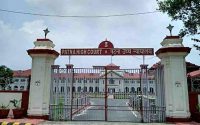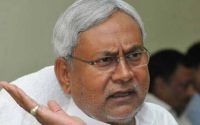$100 Website Offer
Get your personal website + domain for just $100.
Limited Time Offer!
Claim Your Website NowCases reassigned to Patna High Court judge who flagged corruption in judiciary
Source: scroll.in
This came after Rakesh Kumar and Chief Justice AP Sahi met Chief Justice of India Ranjan Gogoi in New Delhi.
Patna High Court Judge Rakesh Kumar, who was criticised by a special bench for making observations on alleged corruption in the judiciary and whose judicial work was withdrawn, was reassigned cases from Monday, PTI reported. The instruction to reassign cases was issued on Sunday by the High Court registrar after Kumar and Chief Justice AP Sahi met Chief Justice of India Ranjan Gogoi in New Delhi.
The controversy began after an August 28 order by Kumar, who had taken suo motu cognisance of a bail order granted to former Indian Administrative Service officer KP Ramaiah in connection with a corruption case. Kumar, in his 20-page order, had also asked for a Central Bureau of Investigation inquiry into the matter and stated several instances of alleged wrongdoing by the judiciary.ADVERTISEMENT
“In normal course, I would not have passed such order, but since last few years, this Court is taking notice of the fact that in Patna Judgeship, things are not going in its right perspective,” Bar and Bench reported, citing Kumar’s order. The matter was taken up even though it had already been disposed in March last year.
Kumar had asked how the former bureaucrat was granted bail by a lower court when the Supreme Court as well as the High Court had rejected his plea for anticipatory bail because of the seriousness of the allegations. Ramaiah is accused of embezzling over Rs 5 crore during his tenure as the Bihar Mahadalit Vikas Mission chairperson.
A day after Kumar’s order, the Patna High Court withdrew all his judicial work and an 11-judge bench of the High Court stayed his August 28 order. The bench also stated that the “uncharity unleashed” by Kumar was based on “personal prejudice” as the order was “full of anguish tending towards vengeance” instead of reformation.
The bench had also said that it should not be misunderstood to be averse to concerns raised by Kumar, but asserted that it was their “onerous duty” to prevent any lasting damage by an individual acting on personal bias. “The bench finds this a painful task to perform, but, nonetheless, it deserves to be performed…. When we have to uphold the majesty of the institution, an individual judge’s identity is inconsequential,” PTI reported, citing the bench’s order.



